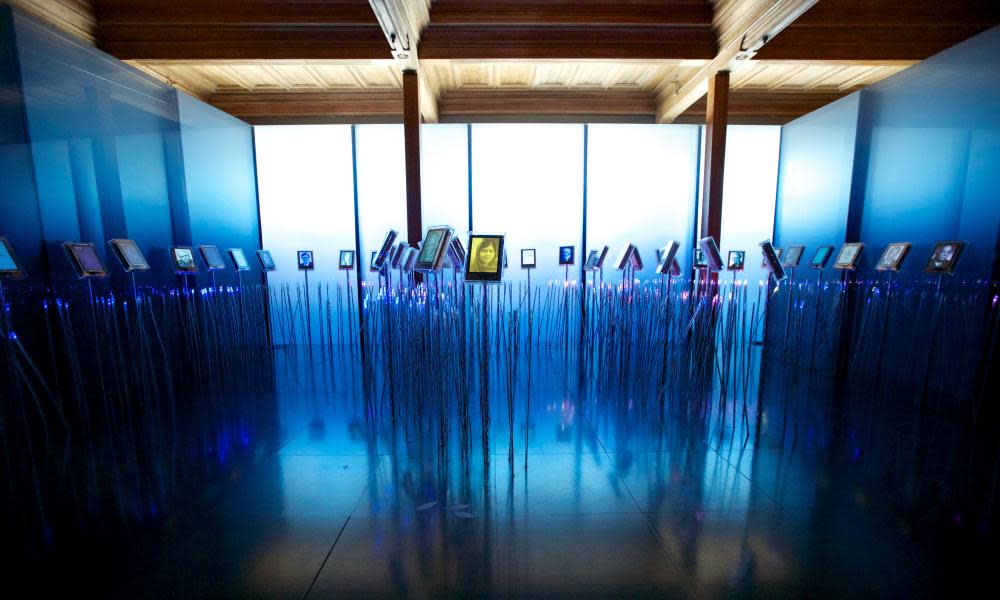Outrage as anti-immigration politician bids for Nobel peace committee seat

A populist anti-immigration politician could be elected to the Norwegian Nobel committee this week, sparking outrage and fears the credibility of the prestigious annual peace prize – and the legitimacy of the body that awards it – are at risk.
Three of the five seats on the committee, which is chosen by Norway’s parliament and must reflect its political complexion, fall vacant this year after general elections that saw the populist Progress party return to government with a 16% vote share.
The party said last week its controversial former leader Carl I Hagen, a vocal opponent of immigration who has also attacked Muslims, gay people and single mothers and called for Norway’s withdrawal from international human rights treaties, would be taking the Nobel committee seat it was entitled to.
With parliament due to begin deliberating on all the candidates on Monday, fierce opposition to Hagen’s nomination has focused – in public, at least – on the longstanding convention that current government members and MPs should not be members of the Nobel committee.
This is meant to ensure the committee cannot be subject to political pressure should, for example, its choice of laureate be considered likely to harm government interests – as in 2010, when China reacted furiously to the award of the prize to one of its leading dissidents, Liu Xiaobo.
Hagen, 73, is the anti-immigrant Progress party’s first deputy MP, meaning he could be called to sit in the Storting at any time – and for any length of time – should an MP be absent.
“Appointing an active politician to the Nobel committee would absolutely send the wrong signal about the independence of the committee,” Abid Raja, a Liberal party MP and deputy speaker of the parliament, told the Guardian.
“It’s vital for the legitimacy of the Nobel peace price that it’s completely independent from government and parliament. I’m surprised the Progress party is ready to break this tradition.”
The Labour party leader, Jonas Gahr Støre, said committee members could not have formal ties to government. “As a deputy member, Hagen may be called to sit in parliament until 2021,” he said. “The Progress party has the right to appoint one member, but should definitely find another candidate.”
In private, however, many are scandalised that a politician with Hagen’s views could find himself on the peace prize committee. “His opinions are not consistent with the values the prize promotes and that much of Norway wants to project,” said one politician, who asked not to be identified. “It’s that simple.”
Among the veteran populist’s more outspoken comments are: “A society without ethnic minorities is a society in harmony,” “Single mothers … can thank themselves for their situation, and get too much public help,” “Without immigrants, Oslo wouldn’t have a housing crisis,” “Being gay … is nothing to celebrate,” and “alien cultures” must be resisted.
In his 2007 book, Honestly Speaking, Hagen wrote of relations between ethnic Norwegians and the country’s Muslim community: “Freedom of expression is subordinate to the warlord, rapist and woman trafficker Muhammad.”
The secretary of the Nobel committee and director of the Nobel Institute, Olav Njølstad, told the public broadcaster NRK that Hagen’s appointment would be “completely untenable” and “indicate little understanding and respect for the Nobel committee’s work”.
Two of Norway’s leading newspapers, Aftenposten and Dagens Næringsliv, have also published strongly worded editorials saying Hagen should not be appointed. The Progress party’s arguments – that its former leader deserved the job and had long experience – were irrelevant, Aftenposten said.
Støre told the Guardian the Nobel peace prize, awarded this year to the anti-nuclear campaign group Ican, was “the world’s most prestigious prize. We should do our outmost to secure the integrity of the committee awarding it.”

 Yahoo News
Yahoo News 
